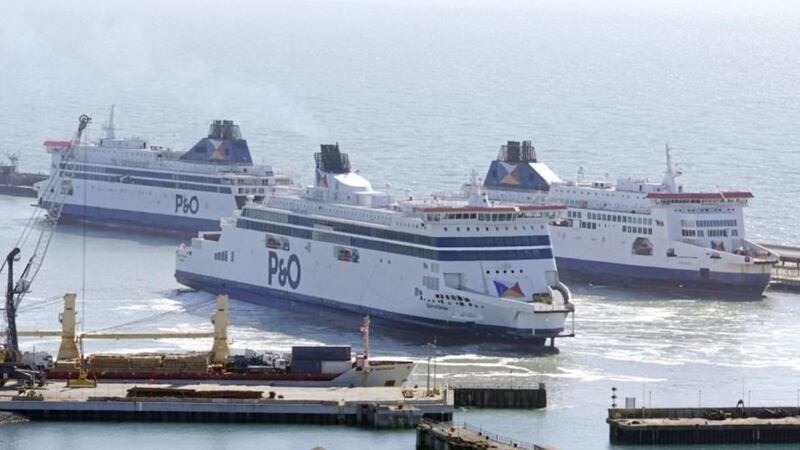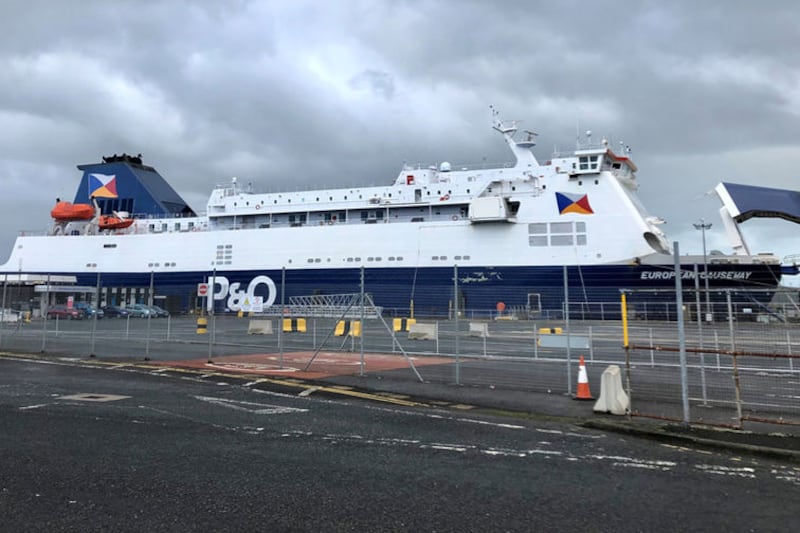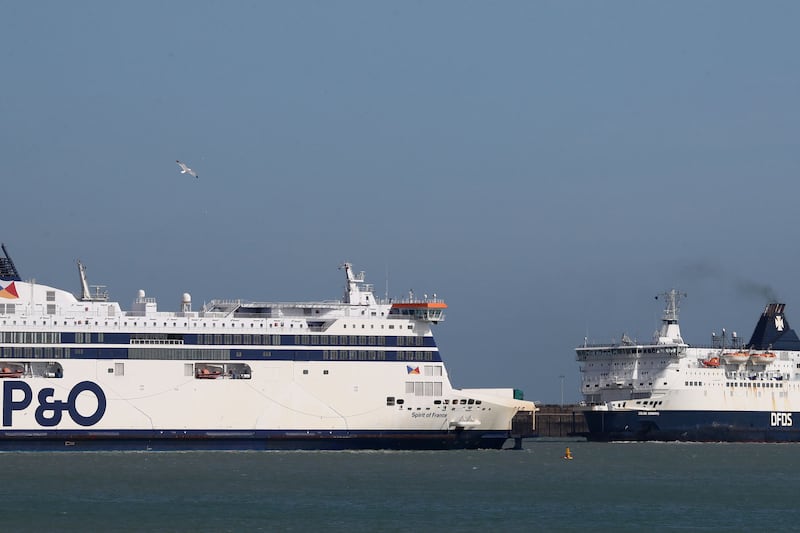Cheaper agency workers hired by P&O Ferries to replace sacked seafarers did not know how to use life-saving appliances, according to a new report.
A total of 23 failures on Spirit of Britain were found by Maritime and Coastguard Agency (MCA) inspectors.
Fast rescue boats were not properly maintained and oil filtering equipment was not working.
There were also five deficiencies with working conditions, and five relating to fire safety systems.
Spirit of Britain was detained following the inspection on April 11, before being cleared to sail on April 22.
The vessel was used by P&O Ferries to restart operations between Dover and Calais on Tuesday for the first time since the company sacked nearly 800 seafarers and replaced them with agency workers on March 17 to save money.
The 23 safety failures were listed without further details by the Paris Memorandum of Understanding (MOU), which is an alliance of 27 national maritime authorities including the UK.
It stated there was a “lack of familiarity” with the “operation of life-saving appliances”, which could relate to equipment such as rescue boats, lifeboats, life-jackets or flares.
RMT general secretary Mick Lynch described the report as “further evidence that P&O is a capitalist bandit sailing in our waters”.
He said: “The lack of care and respect P&O clearly has for safety regulations – that are designed to save lives in the event of maritime emergencies – is on a par with their appalling treatment of the loyal 800-strong workforce who were sacked last month.
“There can be no doubt that the public and haulage firms should boycott P&O Ferries on safety, security and moral grounds until the Government steps in and takes over the running of this rogue maritime operator.”
Spirit of Britain was built in 2011 and can carry up to 2,000 passengers.
At 213 metres long it is one of the largest ferries in Europe.
Thirty-one safety failures were found by the MCA on another P&O Ferries vessel, European Causeway, resulting in it being detained on March 25.
Analysis by the PA news agency revealed that was more than in any of the other 46,000 Port State Control inspections of ships within the Paris MOU in the past three years.
European Causeway was cleared to sail on April 8, but suffered a power failure on Tuesday which left it adrift in the Irish Sea for more than an hour.
The MCA said it can sail again with a restriction on what generators it can use for electricity.
A total of eight P&O Ferries vessels will be probed by the agency following the mass sackings.
Pride of Kent remains under detention after failing an inspection, while Pride of Canterbury and Spirit of France are also out of action as they have not been fully examined.
Pride of Hull, Norbay and European Highlander were all allowed to resume sailings.
Transport Secretary Grant Shapps told the Transport Select Committee on Wednesday that he ordered the MCA to scrutinise the ships “with a fine-tooth comb”.
P&O Ferries has previously said the inspections are being conducted with “an unprecedented level of rigour”.
In response, the MCA said its inspectors work “in exactly the same robust way” for every ship.
P&O Ferries pays its new crew an average of £5.50 per hour, which it has insisted is in line with international maritime laws.
Mr Shapps announced on Thursday that legislation forcing ferry operators using UK ports to pay seafarers at least the national minimum wage of £9.50 per hour will be included in the Queen’s Speech on May 10.
P&O Ferries said it would “fully welcome” measures to increase pay for all seafarers in British waters as it wants “a level playing field”.
Irish Ferries, which also uses a low-cost labour model, began competing with the firm on the Dover to Calais route in June 2021.







